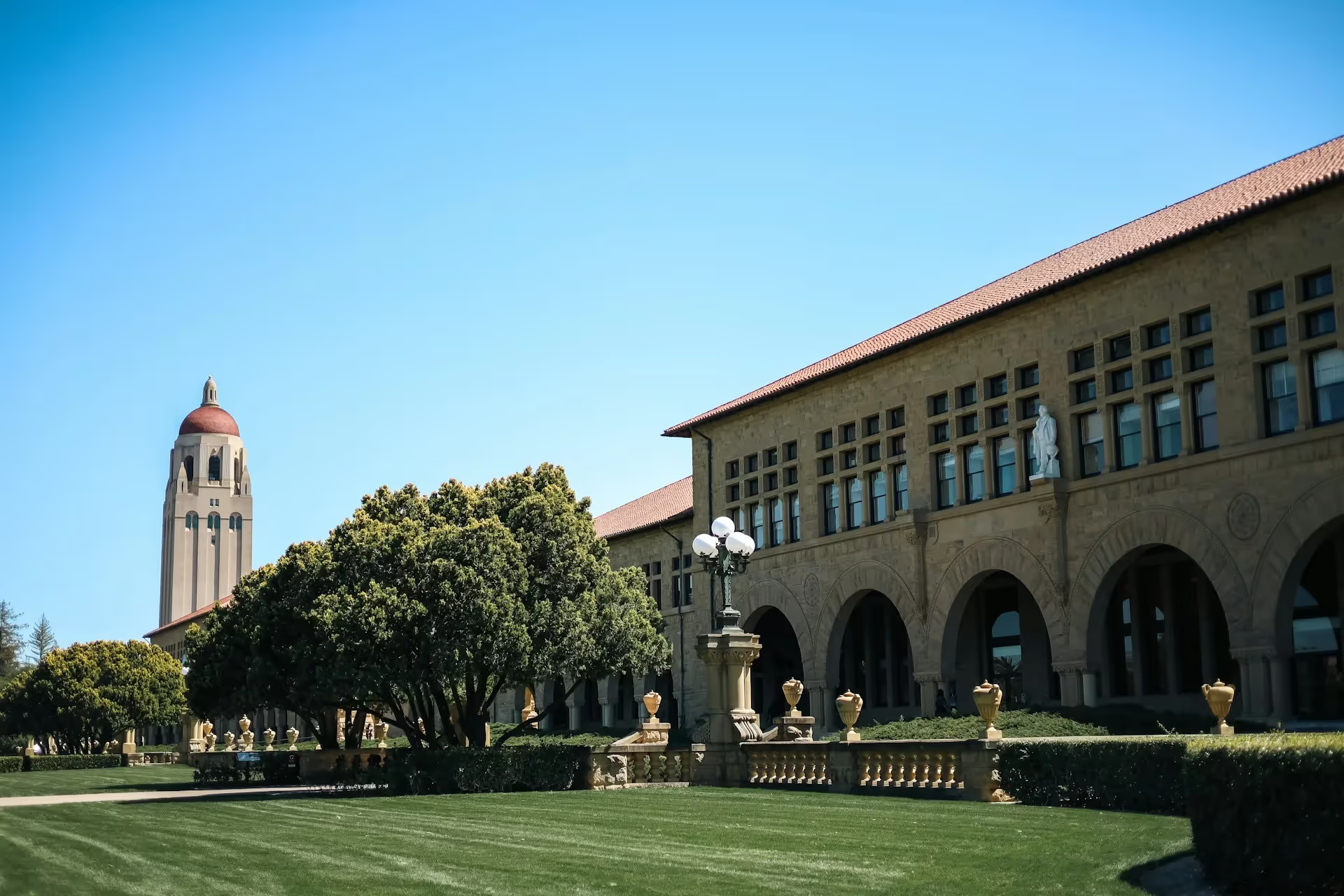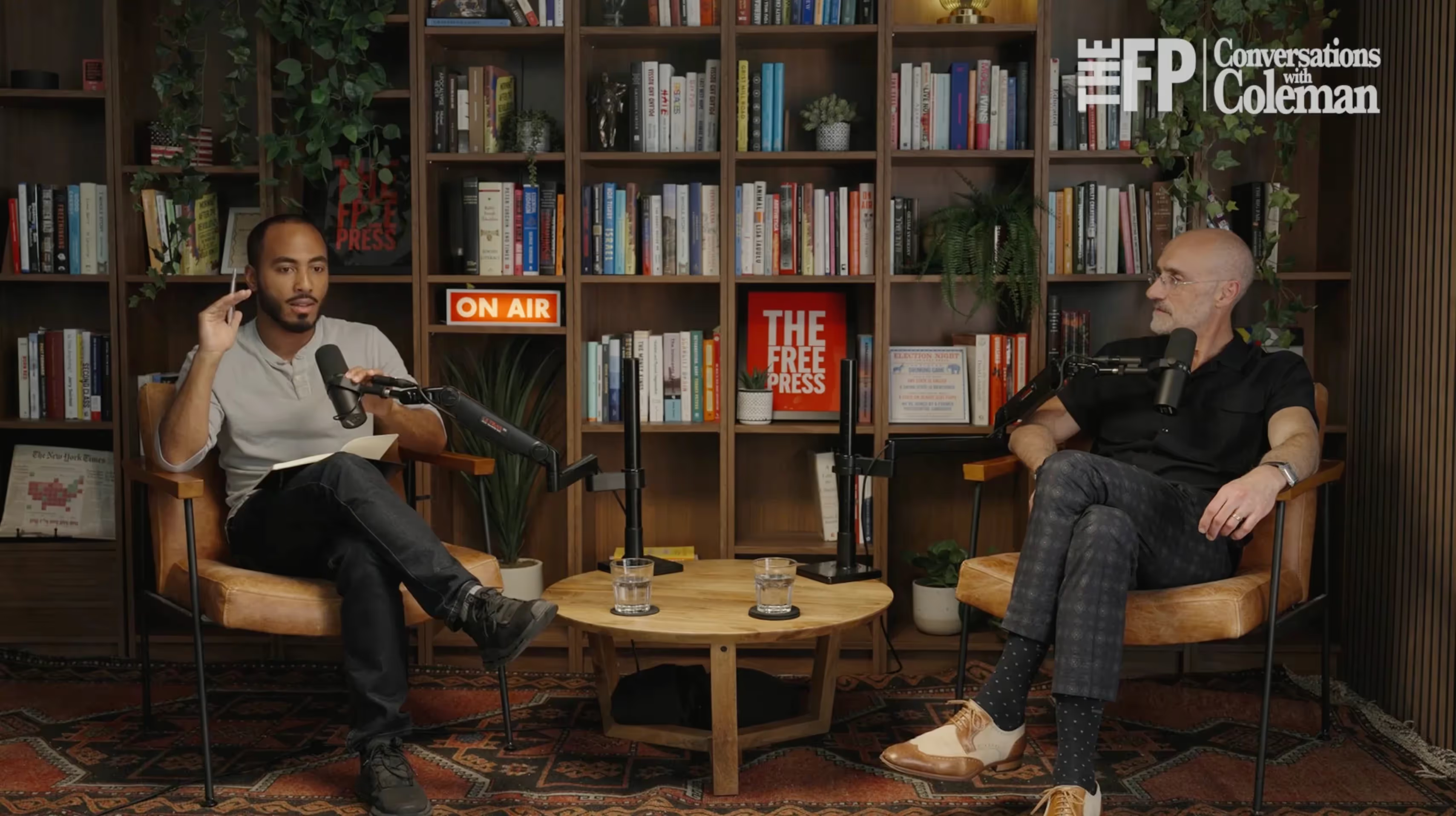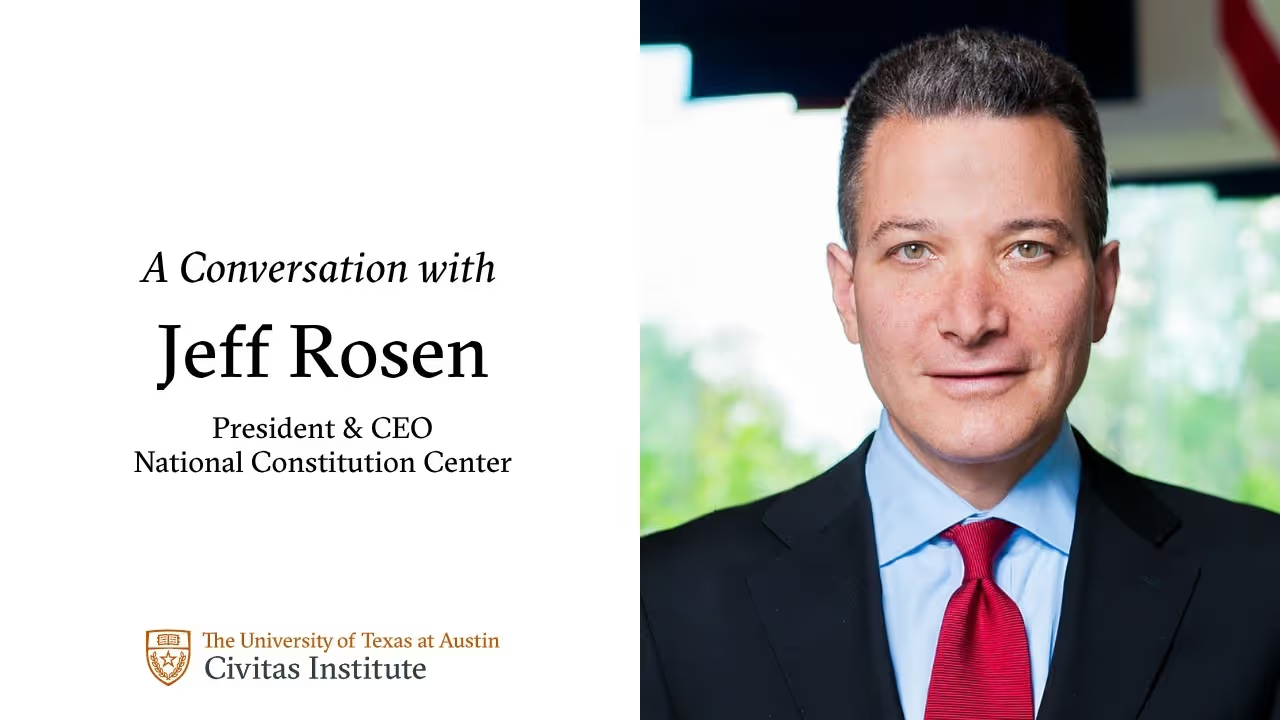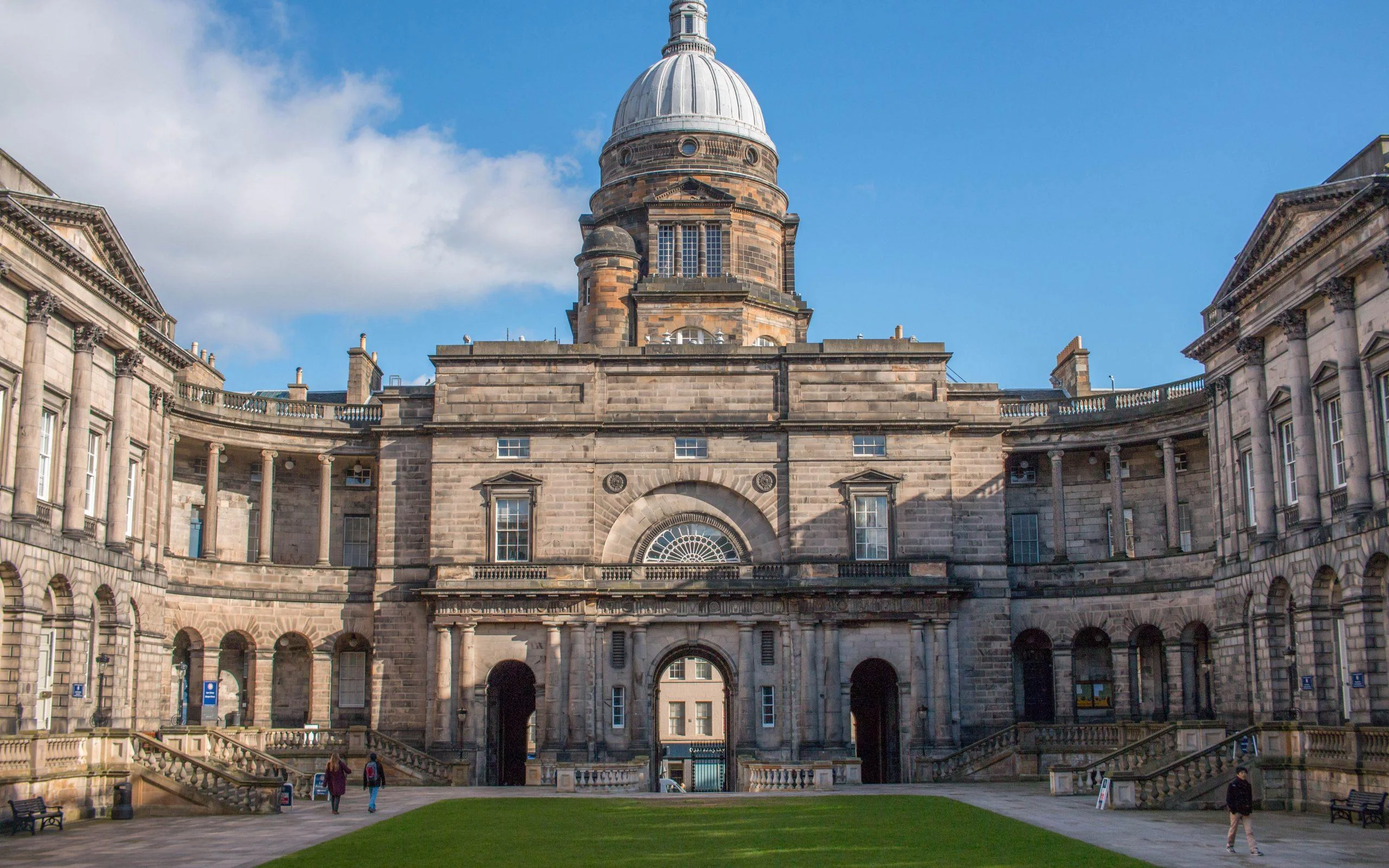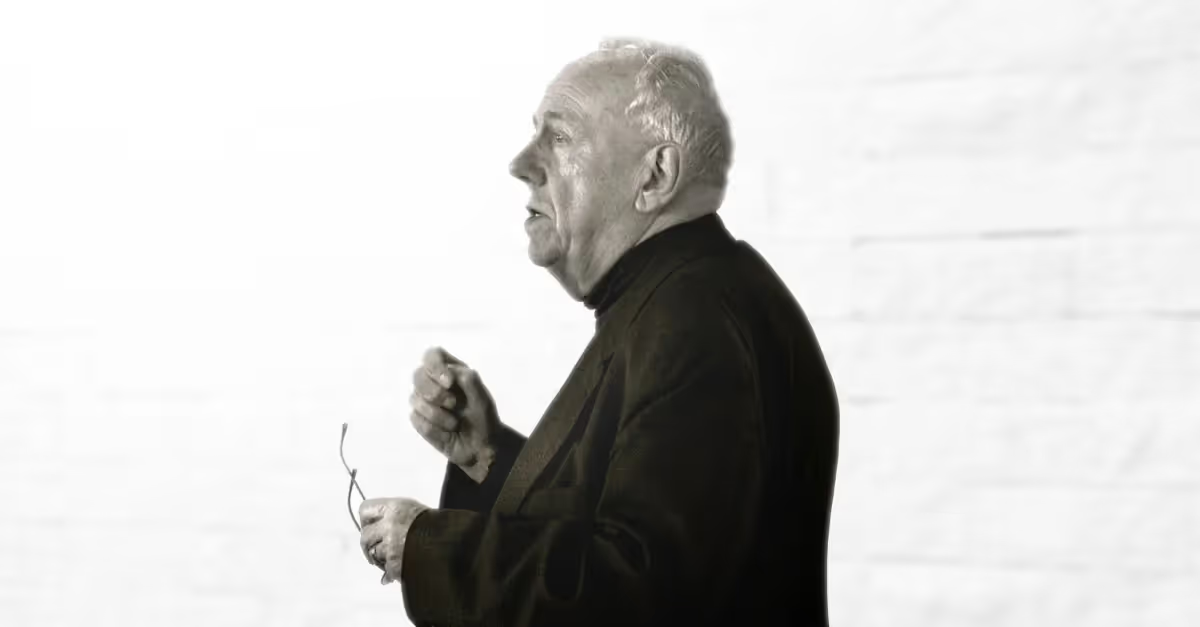
MacIntyre’s Post-Postliberal Godchildren
MacIntyre thought like a Thomist and a Marxist. He was the reluctant godfather of postliberalism.
We recently lost a giant in academic philosophy. Alasdair MacIntyre passed away at the age of 96. He inspired many, including me. He was, in fact, a maverick thinker, a gadfly, who cut through much of the groupthink in academic philosophy. Nathan Pinkoski had that in mind when he observed that MacIntyre “wrote analytically but thought continentally.” I’d put it somewhat differently. MacIntyre thought like an analytic and a continental philosopher, like a Thomist and a Marxist; he thought like many philosophical schools of which he had become familiar. He also saw through the arbitrary conventions of academic philosophy—excessive specialization, box checking, and bureaucratic strategies for legitimacy—and he did not let its prejudices prevent him from fusing horizons with people of varied standpoints (the fact that he did not extend this approach to economists is a separate matter).
On the writing side, Pinkoski was also getting at something, but I would not say that MacIntyre wrote like an analytic philosopher either, not even one of the many analytics who write well (e.g., Alvin Plantinga). He just wrote like a good essayist. And in this, too, he transcended the arbitrary limits of his discipline. As Ed Feser explained the problem on social media, “Analytic philosophers often confuse for rigor, and continental philosophers for depth, what is in reality just bad writing. And the flip side of this is that they sometimes mischaracterize as ‘popularization’ what is in fact just clear and readable writing.” Hardly anyone accuses MacIntyre of poor writing, and partly because of this, he’s susceptible to being errantly dismissed as a pop philosopher.
But one of the things Nathan Pinkoski gets right about MacIntyre is that he is “postliberalism’s reluctant godfather.” There are indeed illiberal elements in MacIntyre’s writings, the implications of which even he had no interest in pursuing. But, unlike Pinkoski, I believe we do MacIntyre the most honor by abandoning those illiberal elements of his thought, instead applying his insights in contexts where MacIntyre could stomach their implications. To show why, I will explain how my evaluation of MacIntyre has evolved over the years.
Like many, I was first introduced to MacIntyre by reading his book After Virtue. I was an undergraduate philosophy major at a Catholic university—in that setting, After Virtue was essential reading. And like most people who read it, I was enchanted by it, and I use that word carefully. I was caught under its spell. MacIntyre was insightful, as I said, because his open-minded approach to the history of philosophy enabled him to acquire a large and diverse conceptual toolbelt. The unique intermingling of these concepts, combined with MacIntyre’s self-confidence, made possible a rare and genuine philosophical creativity. MacIntyre introduced me, moreover, to the value of traditions of inquiry and traditions of practice, as well as to the properly practical setting of virtue formation and its ends. I took away from it an introduction to the philosophical hermeneutics of thinkers like Gadamer and M. Polanyi, as well as an appreciation for the epistemological significance of narrative.
I found so many little insights in After Virtue that this allowed him, in my opinion, to feign infallibility convincingly. This was especially the case because the central claim of his book was one about history. If an undergraduate attempts to present a comprehensive historical theory, the teacher will advise them to narrow their focus. Even a graduate student will be discouraged from telling these stories, as no graduate student can be expected to do well, as it’s too ambitious. There is just too much complexity in history to explain it all in terms of a few ideas. And yet the authors who try are sometimes richly rewarded with book sales—e.g., Hegel, Marx, Weaver, McLuhan, Deneen, and MacIntyre. People like the security of a story that explains everything, and the most convincing ones are those that draw liberally from a partial truth. Like many of these stories, MacIntyre’s story of everything was one of decline, where everything went wrong.
That is why, despite its many insights, After Virtue is not a work that I return to regularly, unlike other works of MacIntyre. I saw too often in graduate school and among intellectual Catholics the radicalizing effect it had on my generation and, even more so, younger generations. Pinkoski was right to say that MacIntyre was the unwilling godfather of today’s postliberals. Reactionary narratives, such as the one in After Virtue, prepared many for the simpler diatribe of Patrick Deneen: there was the golden age, represented by Aristotle and Aquinas, and the fall that came with modernity; now, the barbarians have already broken through the walls and surround us. Liberalism, capitalism, and even pluralism all represent decline. Things are so bad. How did they get this bad?
The central error in MacIntyre’s story, however, was identified by Robert A. Dahl in Democracy and Its Critics, and it’s an error Martin Rhonheimer also identifies in Patrick Deneen’s Why Liberalism Failed. It is the error of confusing the history of ideas with the concrete history of politics and society. The world of today is bad, says the story, because it represents not a decline in relation to the real world of the past, whether ancient Athens or medieval Europe, but in comparison to the ideals of past thinkers. The integrative polis that was ideated by Plato in the Laws, by Aristotle in the Politics, and even implied in Xenophon’s The Education of Cyrus, is not that of the real ancient city, neither Athens, Sparta, nor Crete. No, it was the imagination of these philosophers about how Sparta might look if it had, instead of integrating society for the sake of military excellence or even the virtue of fortitude, developed a society for the sake of promoting excellence in all four of the cardinal virtues. This was the ideal of the Athenian Academy. It was not the ancient world nor any of its real cities. Yet, implied in MacIntyre’s narrative is that the modern world stinks because it fails to measure up to that imagined city. Look what liberalism and capitalism have taken from us.
But if MacIntyre (or Deneen) instead compared the modern world to any of those ancient societies, it is difficult to see how the latter could possibly measure up to what we have now. Before 1800, close to fifty percent of people did not survive childhood. Before the modern world, the literacy rate was lucky to reach twenty percent anywhere. Orthodoxy was never as prevalent as traditionalists imagined it, even in the so-called age of faith. Life was tough, and because life was tough, it was challenging to get enough people to care about the manifest injustices of the world, like slavery, infanticide, genocide, and cruel punishment. Medieval Europe, for its part, was excellent in comparison to previous societies on these measures, but even then, it does not compare well to America today. In a modern constitutional democracy, we have it better than in almost any other place, at any other time. What compares well with it? This is easy enough to see if we compare apples to apples, rather than concrete realities with abstract ideals.
Fortunately, for MacIntyre, he was too realistic in practice and too allergic to right-wing movements to want anything to do with the postliberal movement and its attraction to strongmen. And in the sequels to After Virtue, MacIntyre’s attention moves in the direction of a context in which his insights about traditions have more fruitful application. These are his lesser-appreciated writings on the university and traditions of inquiry, and they are, in my opinion, where his insights into integrative traditions have their greatest value.
The chief insight of After Virtue and its sequels (Which Justice? Whose Rationality? and Three Rival Versions of Moral Enquiry) is that our moral inquiries and theories have been fragmented because they have been divorced from the context in which they originally made the most sense, integrated traditions of practice. Applied to the university, we could say that in the modern hegemony of non-sectarian universities, with their hyper-specialization and de iure commitment to neutrality in the pursuit of knowledge, the building of traditions of expertise about the good life has become difficult: such traditions, if they are at all comprehensive, are inevitably dismissed as sectarian.
It is in the thicker traditions of practice, however, that a shared communal practice in pursuit of the good life can bring the disjointed and partial insights of various ethical theories and schools into full significance through an ordered and reflective pursuit of moral truth. In the real world, those thicker practical traditions are usually related to churches or religions, but not always (you could have sectarian universities that are atheist, progressive, Kantian, etc.). An advantage of universities grounded in integrative traditions is that they could direct normative disciplines (ethics, politics, political economy, anthropology, sociology, history, etc.) according to a body of shared communal experience, accumulating practical wisdom with time—recalling that in the Aristotelean tradition, practical wisdom comes with the experience of a good-faith commitment to sound reason.
This aligns better with a pluralistic model of education, i.e., one that incorporates competing sectarian traditions that regularly engage with one another. By dropping the implicit, non-sectarian ideal of our culture, sectarian schools could be more self-confident in a moral inquiry that draws on the experiences of their theoretical and practical traditions. Catholic universities, for instance, could be more confident in their own tradition and the fruitfulness of allowing inquiry to be informed by it. This idea runs counter, perhaps, to a type of moral liberalism, or at least treats moral liberalism as one among many sectarian viewpoints; however, it is consistent with, and I would argue, most comfortable in, a broadly liberal political arrangement, if we count American constitutional democracy as one. It’s a mystery to me why MacIntyre did not see this.
In sum, Pinkoski, the postliberal, was largely correct about MacIntyre; he was opposed to free societies and free markets. But as Pinkoski also implies, MacIntyre could not seem to stomach the illiberal alternative either. If one accepts the above criticisms of MacIntyre’s politics, the best way to honor his legacy is to apply his insights about integrative traditions where they are most effective, the world MacIntyre knew best: the world of thought and inquiry. That is the path for us, his post-postliberal godchildren.
Thomas Howes has a PhD in Philosophy from the Catholic University of America and is a member of the James Madison Society at Princeton. Along with James M. Patterson, he is writing a book titled Why Postliberalism Failed to be published by the Acton Institute.
Pursuit of Happiness

The Rise of Latino America
In The Rise of Latino America, Hernandez & Kotkin argue that Latinos, who are projected to become America’s largest ethnic group, are a dynamic force shaping the nation’s demographic, economic, and cultural future. Far from being a marginalized group defined by oppression, Latinos are integral to America’s story. They drive economic growth, cultural evolution, and workforce vitality. Challenges, however, including poverty, educational disparities, and restrictive policies, threaten their upward mobility. Policymakers who wish to harness Latino potential to ensure national prosperity and resilience should adopt policies that prioritize affordability, safety, and economic opportunity over ideological constraints.

Exodus: Affordability Crisis Sends Americans Packing From Big Cities
The first in a two-part series about the Great Dispersion of Americans across the country.

The AI Future: Between Certain Doom and Endless Prosperity
AI continues to become more complex and sophisticated, but public policy solutions do not.

The Castle, the Cathedral, and the College
Our civilization struggles to explain why anything should command allegiance beyond preference or power; its remnants echo a grandeur now distant.







